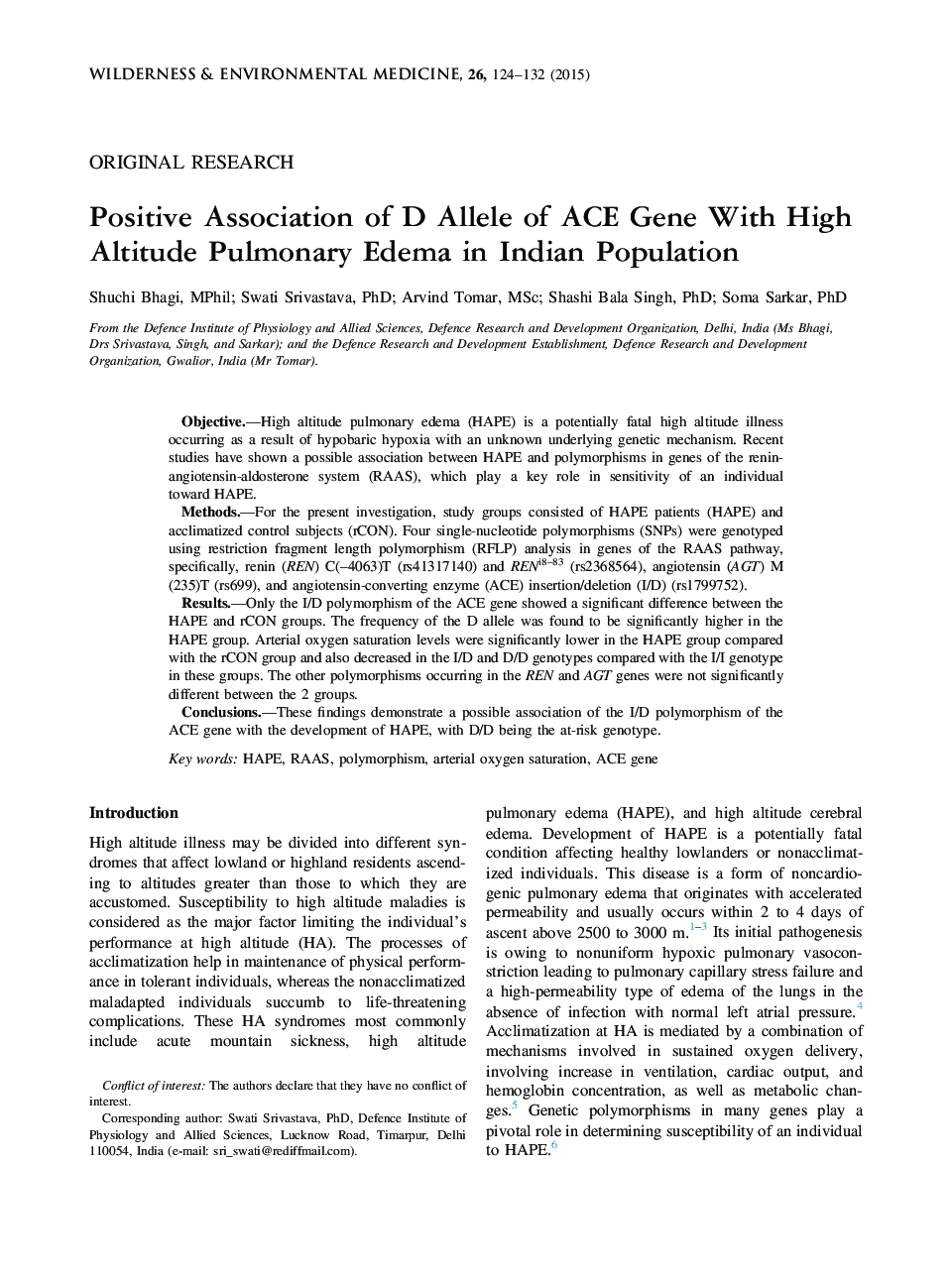| Article ID | Journal | Published Year | Pages | File Type |
|---|---|---|---|---|
| 2613430 | Wilderness & Environmental Medicine | 2015 | 9 Pages |
ObjectiveHigh altitude pulmonary edema (HAPE) is a potentially fatal high altitude illness occurring as a result of hypobaric hypoxia with an unknown underlying genetic mechanism. Recent studies have shown a possible association between HAPE and polymorphisms in genes of the renin-angiotensin-aldosterone system (RAAS), which play a key role in sensitivity of an individual toward HAPE.MethodsFor the present investigation, study groups consisted of HAPE patients (HAPE) and acclimatized control subjects (rCON). Four single-nucleotide polymorphisms (SNPs) were genotyped using restriction fragment length polymorphism (RFLP) analysis in genes of the RAAS pathway, specifically, renin (REN) C(–4063)T (rs41317140) and RENi8–83 (rs2368564), angiotensin (AGT) M(235)T (rs699), and angiotensin-converting enzyme (ACE) insertion/deletion (I/D) (rs1799752).ResultsOnly the I/D polymorphism of the ACE gene showed a significant difference between the HAPE and rCON groups. The frequency of the D allele was found to be significantly higher in the HAPE group. Arterial oxygen saturation levels were significantly lower in the HAPE group compared with the rCON group and also decreased in the I/D and D/D genotypes compared with the I/I genotype in these groups. The other polymorphisms occurring in the REN and AGT genes were not significantly different between the 2 groups.ConclusionsThese findings demonstrate a possible association of the I/D polymorphism of the ACE gene with the development of HAPE, with D/D being the at-risk genotype.
